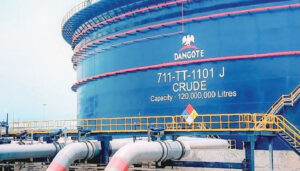
The Minister of Works, Dave Umahi, has revealed that an estimated N18 trillion is needed to construct and maintain good roads across Nigeria.
Speaking with journalists after defending his ministry’s 2025 budget estimates before the Senate Committee on Works, Umahi emphasized that the annual budgetary provisions by the National Assembly are insufficient to meet the enormous cost. He urged the lawmakers to support borrowing as a means of addressing the funding gap.
He stated, “The President inherited 2,064 projects valued at N13 trillion in 2023. Considering current market realities, the total cost would now be close to N18 trillion.
“When the President, an economist with extensive experience, decides to borrow money to fund these projects, it is important for the public to understand and support such actions.”
Umahi stressed the economic benefits of improved road infrastructure, noting that fixing roads would stimulate economic activities across sectors, from construction materials to small businesses.
“Road infrastructure is a catalyst for economic growth. It creates opportunities for people selling sand, chippings, food, and other essentials. We must encourage the President to borrow money for this critical need. He cannot manufacture money,” he said.
He expressed frustration over public criticism and misconceptions about the funding allocated to road projects.
“I have not failed in many of my life engagements, but I feel frustrated trying to fix Nigeria’s roads with the current inadequate funds. This is why we need special funding through loans for road infrastructure,” Umahi added.
Senate Committee’s Reaction
The Chairman of the Senate Committee on Works, Mpigi Barinada (PDP, Rivers South East), acknowledged the enormity of the task and supported exploring alternative funding sources for road projects. He, along with other committee members, described the proposed N827 billion capital allocation for the Ministry of Works in 2025 as grossly inadequate.
The consensus is that without significant financial intervention, achieving the necessary improvements to Nigeria’s road infrastructure will remain a daunting challenge.









